Bahrain Formula 1: Largest Event Venue in the Middle East
Sheikh Salman bin Isa Al Khalifa, CE of Bahrain International Circuit
If we get a $220 million direct impact and the circuit cost $150 million to build then in one week we are able to cover our costs for building it.
Interview with Sheikh Salman bin Isa Al Khalifa, CE of Bahrain International Circuit
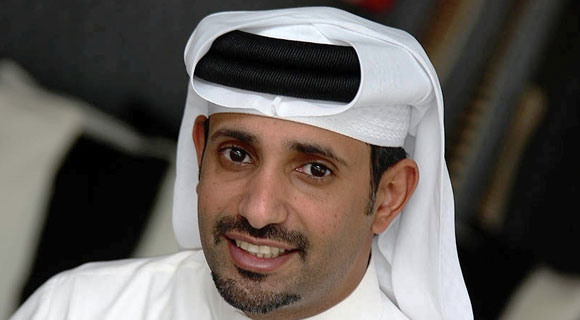
After the incidents that happened in Bahrain at the beginning of the year 2011, what is your strategy for this year and the next year to rebuild Brand Bahrain and Brand BIC?
The unfortunate events that happened in Bahrain did affect us because we had to post pone the Grand Prix which is one of the biggest events for us as a race track. We are now looking for a proper time to bring back the Grand Prix. It is a very important race for the kingdom of Bahrain and it is the biggest sporting event in the region, being the 3rd largest Enduro shop in the world.
If we get a $220 million direct impact and the circuit cost $150 million to build then in one week we are able to cover our costs for building it.
On a local level nothing really has changed, our races and events have continued and we just had a very successful end of the season last weekend where we had great support for the Grand Prix. In terms of local we are fine but in terms of international there is some work to be done on building the brand and Formula One is our ticket to do that.
In 2008, the Grand Prix ran at the Bahrain International Circuit which generated direct and indirect economic benefit of almost 600 million dollars according to an independent publication. What is the central role BIC is playing in Bahrain’s economy and how do you view the growth and development of motorsports in the region?
The economic impact is mainly linked to the Formula One race and that is something that the BIC and Bahrain do by hosting the Grand Prix. I like to concentrate on the direct impact; to me this is important because it is more tangible and easier to explain.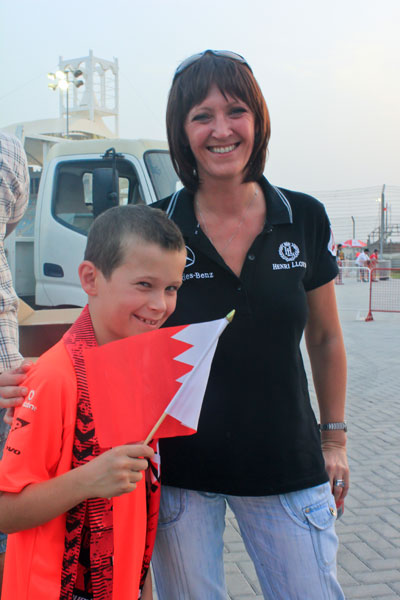
If we get a $220 million direct impact and the circuit cost $150 million to build then in one week we are able to cover our costs for building it. The world may not see the benefit but Bahrain does, and we need to always remind ourselves that this was the right decision. When we started this, the difference Bahrain had compared to the region was how passionate we were to have this race.
Motorsports have been part of Bahrain since the 1950’s and we were the first country to have a motorsports federation in 1952. When the decision came to grow this sport, circuit racing was the only thing missing so we needed to introduce Formula One. As pioneers & leaders in this industry we knew that others would follow.
Since the creation of the BIC we have had another Formula One circuit being built in Abu Dhabi that will help us build the Formula One Brand and we have circuits now in Qatar, in Saudi Arabia and hopefully in Kuwait. In terms of what role we took, we took the first and most important step by creating a high standard. We started with a big race that covered everything else and now we have one of the safest tracks that people will come to at any time.
How challenging is it to keep the BIC busy off season and have you been successful at attracting other venues? What are the venues that you have planned for this year and the next year?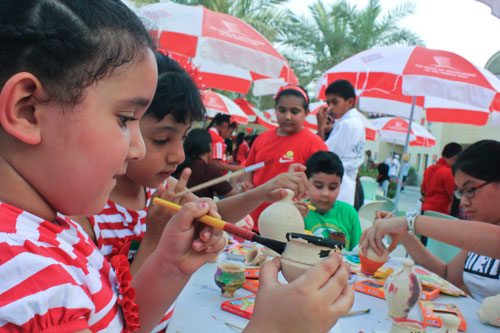
For this year we are talking about what events we should have and being very specific and strategic about them. Most of visitors are from the cruise ships that come in and what we have managed to do is tie in a tour of the circuit with every cruise ship that comes to the Island.
I think it is important for us to show that we are very proud of this icon. This circuit has become part of Bahrain and we want it to be a story that everyone goes and sees, it’s a beautiful track and it represents us. This is something we have worked on; if you look at the design of the circuit it has very clear architecture of our culture, our customs and our traditions. Bahrain is very proud of its culture and very proud of its history but as a kingdom we want to be seen as modern.
Recently you have launched a new Karting track, can you tell us more about what it is and how it is being welcomed?
We are very proud of it because it is something we have wanted a long time ago. When it comes to the pyramid of motorsports, people start with karting and work their way up to Formula One. We started with Formula One and six years later we have a karting track. We are very proud of that because now we can begin to build the base of motorsports in terms of the drivers.
We have the facilities in the region now and we have a brief history of what to do right. It is very difficult to take something that works in France, Spain or the UK, transfer it to the Middle East and use that as a success model. We had to find our own path and write our own future and we do get criticism for it sometimes, but if we are going to do it then it has to be for us.
The concentration has now shifted to the region, because we did international racing for 3-4 years where international racers came and gave us exposure and have then left so there was not much left for us. So we decided to build our own so that is where the karting track fits in and that is how our future racers will grow.
When we talk about how important the karting track is, it is the base of our future racers. The success has been amazing, over 40% of what we were expecting in the first month at the beginning of the year. The karting track is very successful, on certain days it runs from 4- 12 am and then on normal days from 10 am until 12 at night and once the weather cools off it is pretty much sold out. 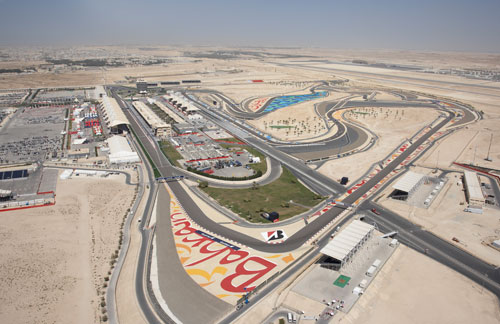
The surrounding area is changing with Al Areen development and newly announced @bahrain which is a $1 billion fully integrated development for Bahrain next to BIC? What is the role of BIC on that and does it have an impact on your strategy?
For me the project of @bahrain is the future stability and sustainability of the race track. The land is owned by the race track and it was designed that way so that the circuit itself cannot stand alone in a new market, so this was strategically planned.
If you are entering a new market in motorsports and you are building the brand you need some assurance that it will be sustainable. We have a 1.1 square kilometer plot of land for investment to get the return of that investment back, and for me that is the future and my source of income.
Other projects next to us add foot holds to the circuit, so if the projects around us bring more people that means they will bring more people to the race track.
Abu Dhabi now has a Formula One track and they are going to do their 3rd race this year, so what kind of cooperation have you done with them since you are the first in the region to do that? What have you done to cooperate with the other circuits and what does it bring to Bahrain’s circuit itself?
We are very happy that Abu Dhabi has come on board and has joined the Formula One family, especially in the region. We had worked in helping them to sign the deal. For us what this does directly is it builds the brand, so we complement each other in building the Formula One brand in the region.
The advantage is that they have financially a lot more strength, their circuit cost 10 times what our circuit cost. Abu Dhabi sports channel does a fantastic job in building the brand and that was something that we struggled with in the past. Other more detailed collaborations we have talked about are shared tickets, packages together and promotions.
There has been a lot of investment into manufacturers and motorsport elements, Abu Dhabi has recently invested in Mercedes Benz and Bahrain has invested in McLaren. We understand that as circuits we have to work together to capitalize to build the ground together and that is where relationships really play a big part.
What do you want to build on and what is your strategy for the BIC to grow steadily?
We need to get our measurements on what we have been managing to do and get a strategy for growth. We have two areas that we have to currently concentrate on, the corporate and retail segments, but also mainly utilizing the circuit in exhibitions and meetings because there is an advantage that we have here that is different from any hotel or conference center that people usually go to.
We have the conference space but we also have the advantage of linking it with an off road course or a motor bike experience and so having that mix and having the right partners that help us sell that is one of our strategies. 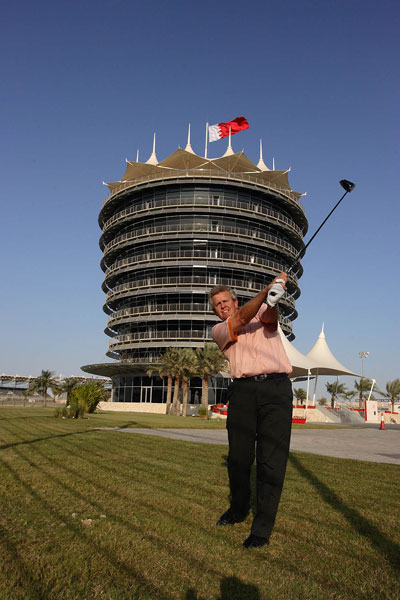
We have worked on doing a deal with Bahrain Ministry of tourism to start a team that goes out and really pushes the exhibition industry and it has been very successful in the initial interest for companies. We also have found a niche in using the technology at the race track for bringing big events.
We had the CISCO event in 2010, which was one of the largest in the Middle East. CISCO utilized all the fiber optics in the circuit and that opened up something new for us. At the beginning we did not know what a Formula One track needed but now we see how advanced it is in that everything is linked by fiber optics. It was very nice to see the utilization of the track and we are working on having them back in 2012 or 2013 depending on the timing.
That was a big event and we realized that we could take it a step down and have it at a smaller level, an introduction of a new technology should be here. What we are trying to do is find the synergies of Formula One, of race tracks, of speed and industries that have that. It has to make simple sense and if we tell them that we have the fastest connections here and that is clearly important for your industry then they come.
We are all about Formula One, racing, the precision and integrity in the racing and we try to use those elements because they are common elements. We don’t want to open up anything, we want to stay true to our core as a race track, we get a lot of requests for marathons or bike races on the race track and I am not for that because I do not want to be an exhibition for anything, I think it should be motor-related. However, we use those elements of motorsports to attract and it has been very successful.
Since the Grand Prix was postponed there was a lot of petition signatures showing the support of the Bahraini people. I would like you to conclude on this subject because I think this is the key for Bahrain.
“Bring Back F1” I think was the campaign and it is amazing how social media has taken over in affecting your meetings. We were having our weekly meeting and someone brought up a group of people that wanted to bring back F1 and I said “well that is good because we want to bring back F1, can you tell me more about it” and they said that it was on Twitter.
We decided to talk to them so we brought in the group for a first meeting and they were very passionate about it. They told us that the newspaper wanted to write a letter to Bernie Eccelstone and I said “Okay, lets run with it. The important thing is that we support you in having it here. We have a race so you can join us”. It was very successful because it showed different people getting involved in how important it is, we know how important it is because we see the numbers. 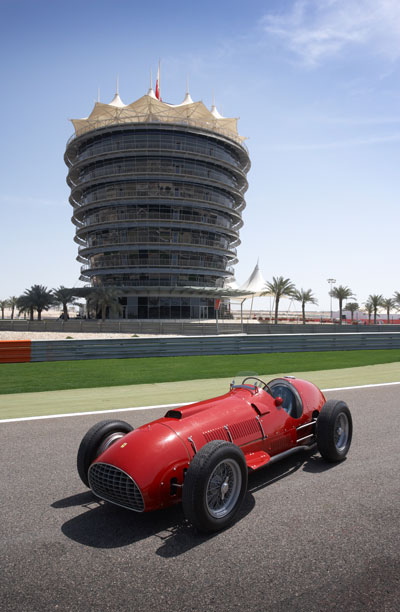
I don’t want to say it represents Bahrain but it was a big number of people that was enough to listen to. They are still going on and they are not going to stop until we get the race which is good.
It also shows the world that you have a unified country, it goes beyond internal conflicts.
We are in motorsports and we are in entertainment and these elements bring people together. We try to build bridges and bring people together, that is what motorsports is all about. We come together, we have a very fair race, and these are the principles we try to push.
It is very important for us to have fairness in the race and that is across the board in everything we do. I am very happy to have Formula One with us, the support has been fantastic from all the teams and all the organizers. Together it shows that we are doing ok, I never like to say that we are doing fantastic because there is always room to improve, but if the teams and the drivers want to come back and a big part of the community likes this event then we are doing something right and we should continue to do it.